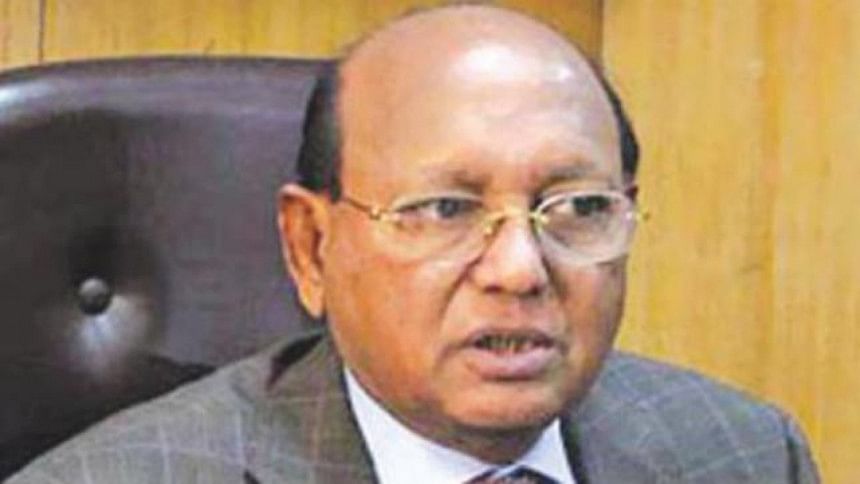Many trade union leaders are outsiders: Tofail

Commerce Minister Tofail Ahmed yesterday criticised a section of trade union leaders who lead the apparel sector but are not employed in the garment sector.
“They are outsiders. I am sorry to say that the outside labour leaders talk against the interest of Bangladesh to their foreign partners,” he said while speaking at a seminar at the Bangladesh Institute of International and Strategic Studies in Dhaka.
The Centre for Governance Studies (CGS) organised the discussion on 'Bangladesh in Regional Trade and Connectivity: A Politico-Economic Assessment'. The minister also spoke about Bangladesh's transforming garment industry.
Of the top 10 green factories in the world, seven are in Bangladesh. The top ranked three green buildings are also in the country, Ahmed said. Most of the top-ranked green buildings obtained nearly 100 out of 110 marks given by the US Green Building Council, according to the minister.
Currently, factory owners produce garment items in 67 green or LEED (Leadership in Energy and Environmental Design) buildings certified by the USGBC.
“Very soon the number of such buildings in the apparel sector will cross 270 as the construction of these buildings is in progress,” Ahmed said.
The minister was also critical of South Asian nations, saying the countries could not reach consensus to strengthen the South Asian Association for Regional Cooperation (Saarc) although the platform has a potential to become a major regional trade bloc.
Ahmed said the example of non-cooperation among the Saarc nations is noticed if the trade balance is analysed.
The region's global trade stands at $3 trillion, but the proportion of intra-South Asia trade is only 5 percent of the total trade.
Ahmed also said Bangladesh wants to sign the proposed free trade agreement with Sri Lanka at the end of 2017. But Sri Lanka wants to strike the deal next year as both countries need to do some home-work to achieve a win-win outcome.
According to the minister, Bangladesh has included cold rolled coil, cement and paper in the free trade negotiation as the country is self-sufficient in the items.
Chowdhury Kamal Ibne Yusuf, a former minister, said Bangladesh has the opportunity to be a regional connectivity hub in South Asia through deep-sea ports in Sonadia and Payra as well as two existing ports in Chittagong and Mongla.
He said India's enthusiasm about regional connectivity is understood as the country wants to connect its landlocked north-eastern region with other countries.
The connectivity through seas and shorter transport roads will end the landlocked and semi-isolated status of the north-eastern region of India, he said.
“But would India finance the cost of our investment of more than $1.5 billion required to construct roads for heavy trucks to move?” Yusuf questioned.
He said a tied loan of $1 billion with interest and other fess is not enough. In fact, no country can take the burden of such a tied loan that mainly serves the counterpart's interests.
The former minister also raised the question whether the bilateral connectivity with India would benefit Bangladesh. Such bilateral connectivity should be examined carefully and should not be compromised on political ground, Yusuf said.
He said there is a debate on how much Bangladesh has gained from two giant neighbours India and China.
The bilateral trade of Bangladesh is overwhelmingly in favour of India and China. The non-tariff barrier is a serious constraint for trade with India, Yusuf said.
M Ataur Rahman, chairman of the CGS, presided over the seminar, while Zillur Rahman, executive director of the CGS, and M Shahidul Islam of HUST School of Economics in China also spoke.

 For all latest news, follow The Daily Star's Google News channel.
For all latest news, follow The Daily Star's Google News channel. 



Comments